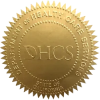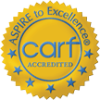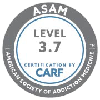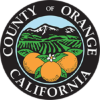Drug Detox: Withdrawal Side Effects
As important as it is, drug detox can be dangerous—even life threatening. People who attempt to stop taking drugs without proper medical supervision are at risk. Withdrawal symptoms can vary depending on the type of drugs you’re taking, how much you take, and how long you’ve been taking them.
The first stage of drug detox is called acute withdrawal. Acute withdrawal symptoms vary, but they typically include things like:
- Shaking
- Sweating
- Nausea
- Diarrhea
- Anxiety
- Depression
- Insomnia
These symptoms are caused by the sudden absence of certain chemicals in the brain that were produced by drugs. As these chemicals leave the body, they trigger an alarm system designed to protect us from harm.
Symptoms can last anywhere from several days to several weeks, depending on the substance and its half-life (how long it takes for your body to rid itself of half of the dosage).
Withdrawal symptoms will gradually decrease as your body clears itself of drugs or alcohol. However, it can take several months for your brain chemistry to return to normal levels after long-term use.
Medication Assisted Drug Detox in Orange County
There are several medications that can be used to help manage the symptoms of drug detoxification and reduce the risk of complications. Here are a few examples:
- Methadone: This medication is used to manage withdrawal symptoms and cravings associated with opioid dependence. It works by binding to the same receptors in the brain that opioids bind to, but without producing the euphoric effects.
- Buprenorphine: Like methadone, buprenorphine is used to manage withdrawal symptoms and cravings in individuals with opioid dependence. However, it has a lower risk of overdose and is less likely to be abused than methadone.
- Naltrexone: This medication can be used to help reduce drug cravings and prevent relapse once detox is complete. It works by blocking the effects of opioids or alcohol on the brain, and can be taken orally or via an injection.
- Benzodiazepines: These drugs are often used to help manage anxiety, tremors, and seizures during drug detox. Examples include diazepam (Valium), lorazepam (Ativan), and chlordiazepoxide (Librium).
- Clonidine: This medication can be used to help manage symptoms such as anxiety, agitation, and sweating during opioid or alcohol detox.
Drug Detox at Saddleback Recovery
At Saddleback Drug Detox center in Orange County, our clients are offered a full treatment detox program. Beyond the physical aspect of ridding the body of addictive substances, our clients are given the tools to find psychological stabilization—a foothold for recovery.
The stabilization phase includes finalizing all the aspects of the next level of care. During their stay, our clients participate in:
Psycho-Educational Groups: DBT, CBT, Anger Management, Communication, and Emotional Intelligence
Recovery Groups: Relapse Prevention, Recovery Principles, Refusal Skills, and Practical Sobriety Tools
Experiential Therapies: Meditation, Mindfulness, Expressive Art Therapy, Yoga, Music Therapy, Life Skills, and Nutritional Cooking Classes
Support After Drug Detox
We walk with every client once they are ready to move on in their continuing addiction treatment after the detoxification process. We guide them in choosing the next type of treatment they may need from an Orange County drug rehab center
Treatment facilities offer holistic approaches, evidence based therapies, and personalized plans to meet the unique needs of every patient. At a rehab center, the ultimate goal is to provide effective addiction treatment in a safe, supportive environment where individuals can heal and thrive.
You can choose from the following treatment options:
Residential Drug and Alcohol Rehab
Residential treatment provides a structured and supportive environment where individuals can focus entirely on recovery. At an inpatient rehab facility, you stay on-site, surrounded by a 24/7 treatment team of medical professionals and trained staff. This option is ideal for people struggling with severe substance abuse issues or co occurring disorders, such as mental health issues alongside addiction.
Residential treatment allows for intensive therapy and effective addiction treatment. With evidence-based therapies like cognitive behavioral therapy (CBT) and Dialectical Behavioral Therapy (DBT), you’ll begin to address underlying issues and mental health disorders that contribute to substance misuse. Dual diagnosis treatment is also an available addiction treatment program for those who struggle with mental health challenges.
The goal is to create a customized treatment plan centered around your recovery journey, helping you achieve lasting recovery and maintain long-term sobriety.
PHP for Drug Addiction Treatment
A Partial Hospitalization Program (PHP) offers intensive therapy during the day while allowing participants to live off-site or at home. This program is an effective step for those transitioning from residential treatment or needing intensive care without a full-time stay. PHP combines evidence based treatment with a personalized treatment plan tailored to your needs.
You’ll engage in counseling and therapy sessions to manage psychological symptoms, address mental health treatment needs, and work on sustainable recovery strategies. Major insurance providers often cover PHP programs, making it a viable option for many.
Ideal for individuals suffering from moderate substance abuse issues, PHP focuses on holistic healing, addressing mental health disorders, and uncovering underlying issues that may fuel substance misuse. With medical doctors and addiction medicine specialists guiding you, this program offers a thorough assessment and individualized treatment plan to help you sustain a healthy recovery.
Intensive Outpatient Program
An Intensive Outpatient Program (IOP) is a flexible option for those requiring support and therapy while transitioning back to everyday life. This outpatient treatment program suits people with stable living environments who are ready for more independence in their recovery but still need structured addiction treatment.
IOP offers a blend of group therapy and individual therapies, focusing on skills to manage triggers, prevent relapse, and maintain well-being. Evidence based therapies and medical interventions address physical symptoms and psychological symptoms, while support for dual diagnosis, such as mental health disorders paired with addiction, ensures a comprehensive approach.
IOP is often part of alcohol rehab programs and drug rehab options, providing a bridge from earlier stages of intensive care like medical detox or residential drug alcohol rehab. This ensures individuals suffering from substance abuse receive clinical excellence and a supportive environment. This program empowers you with practical tools to aid recovery while prioritizing your well-being and sustainable recovery.
Each program, whether residential treatment at a drug or alcohol rehab center, PHP, or IOP, is geared toward helping individuals achieve and maintain lasting recovery from substance abuse.
Best Costa Mesa Drug Detox Treatment Center
Drug detox can be a challenging and uncomfortable process, especially for individuals with severe drug dependence. However, it is a vital step toward recovery.
At Saddleback Recovery, a Costa Mesa detox center in Southern California, we provide professional support, including medication-assisted treatment and therapy, to help manage withdrawal symptoms and kickstart your recovery process. Call us today to learn more about our drug and alcohol treatment programs.




